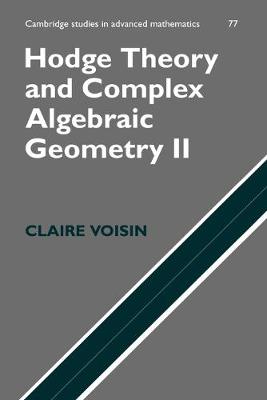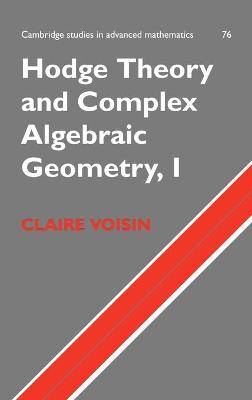Cambridge Studies in Advanced Mathematics
2 total works
The 2003 second volume of this account of Kaehlerian geometry and Hodge theory starts with the topology of families of algebraic varieties. Proofs of the Lefschetz theorem on hyperplane sections, the Picard–Lefschetz study of Lefschetz pencils, and Deligne theorems on the degeneration of the Leray spectral sequence and the global invariant cycles follow. The main results of the second part are the generalized Noether–Lefschetz theorems, the generic triviality of the Abel–Jacobi maps, and most importantly Nori's connectivity theorem, which generalizes the above. The last part of the book is devoted to the relationships between Hodge theory and algebraic cycles. The book concludes with the example of cycles on abelian varieties, where some results of Bloch and Beauville, for example, are expounded. The text is complemented by exercises giving useful results in complex algebraic geometry. It will be welcomed by researchers in both algebraic and differential geometry.
The first of two volumes offering a modern introduction to Kaehlerian geometry and Hodge structure. The book starts with basic material on complex variables, complex manifolds, holomorphic vector bundles, sheaves and cohomology theory, the latter being treated in a more theoretical way than is usual in geometry. The author then proves the Kaehler identities, which leads to the hard Lefschetz theorem and the Hodge index theorem. The book culminates with the Hodge decomposition theorem. The meanings of these results are investigated in several directions. Completely self-contained, the book is ideal for students, while its content gives an account of Hodge theory and complex algebraic geometry as has been developed by P. Griffiths and his school, by P. Deligne, and by S. Bloch. The text is complemented by exercises which provide useful results in complex algebraic geometry.

